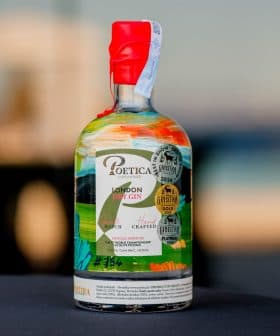U.S. Court Rules in Favor of Spanish Producers Over Table Olive Tariffs
The United States Court of International Trade has ruled that the basis for the 35-percent tariff on black Spanish table olive imports imposed by the U.S. Commerce Department was not in accordance with the law, upholding its previous decision that the department’s arguments were arbitrary. The Commerce Department has been given 90 days to present new arguments to justify the tariffs, which may result in a reduction from 35 percent to 20 percent, allowing Spanish table olive producers to compete in the U.S. market.
The United States Court of International Trade has ruled that the arguments used by the U.S. Commerce Department as the basis of the 35-percent tariff it imposed on black Spanish table olive imports in August 2018 are “not in accordance with law.”
The court’s decision upholds its previous ruling that said the Commerce Department’s basis for imposing the tariffs in the first place had been arbitrary. The Commerce Department was then given 90 days to file to present new arguments.
This decision from the American justice system could lower the tariffs from 35 percent to 20 percent, which would be a very important reduction.
Judge Gary Katzmann said the new arguments once again did not show that subsidies provided to Spanish table olive producers from the European Union and Spanish government via the Common Agricultural Policy (CAP) violated the Tariff Act of 1930.
See Also:Trade NewsFor the CAP to be found in violation of the Tariff Act, the Commerce Department had to prove that the table olive sector was meant to be the primary beneficiary of CAP subsidies (as opposed to the entire European agricultural sector). The judge said the Commerce Department had not satisfactorily done so in its latest testimony.
The Commerce Department also had to prove that demand for olive varieties suitable for the production of table olives is dependent on demand for the table olives. To this point, the judge said that to reach its conclusion based on existing U.S. law and precedent, the department had relied on an “impermissible interpretation” of the law.
The court has now told the Commerce Department to revise the tariffs so that the department’s interpretation of the Tariff Act matches the opinion of the court.
The Spanish Association of Table Olive Exporters and Producers (Asemesa), which was one of the plaintiffs in the case, said that it expects the Commerce Department to reduce the tariffs, which would once again allow Spanish table olive producers to compete in the lucrative U.S. market.
“This decision from the American justice system could lower the tariffs from 35 percent to 20 percent, which would be a very important reduction,” Antonio de Mora, Asemesa’s secretary-general, said in a press release. “Although it is possible that the Commerce Department will try to reformulate its arguments to adapt them to the judge’s opinion, it may also happen that it finally decides to yield and eliminate the anti-subsidy tariff.”
“There are still many variables to consider, but we believe that this opinion is very favorable to the interests of the Spanish black olive since both issues have been ruled in our favor in terms of legal interpretation and not of assessment of the facts,” he added.
According to Asemesa, black table olive exports to the U.S. have fallen by 68 percent since the tariffs were mandated back in 2018.
Along with a separate set of tariffs imposed by the U.S. International Trade Commission on green table olive imports, the entire Spanish table olive sector lost an estimated €135 million since 2018, the trade body said.
De Mora said there was further reason for Spanish table olive producers to be optimistic as the findings by the U.S. court may influence the decision of the World Trade Organization on a similar case.
“At the same time, [the ruling] represents very important support to the process opened by the European Union before the WTO, in which these two arguments are also fundamental,” De Mora said.
The WTO was set to rule on a separate case brought by the E.U. at the end of June, which said the tariffs imposed by the Commerce Department violated several sections of the WTO’s Agreement on Subsidies and Countervailing Measures, General Agreement on Tariffs and Trade 1994 and Anti-Dumping Agreement. Both the E.U. and the U.S. are signatories to all three international agreements.
However, due to a case backlog caused by the Covid-19 pandemic, the WTO announced earlier this month that it would not issue its final report on the matter until the end of August 2021.









